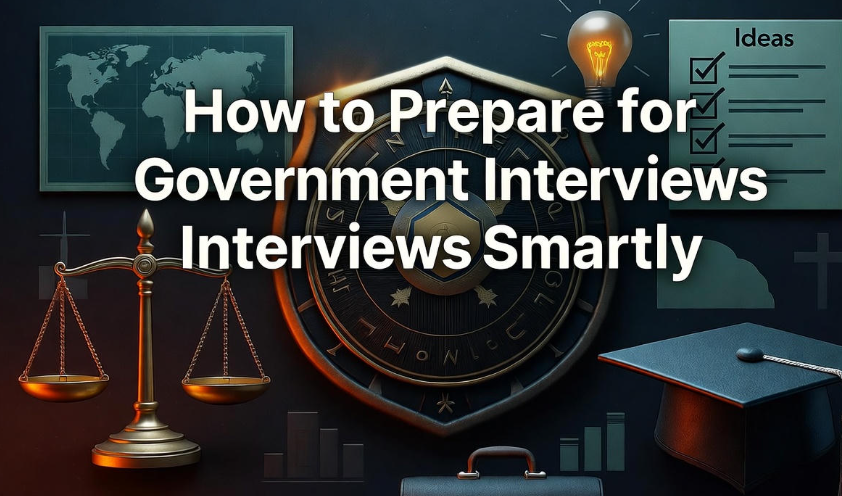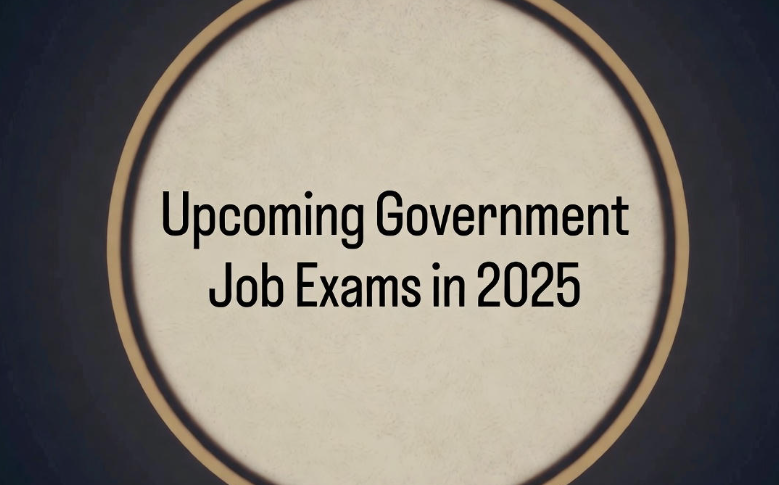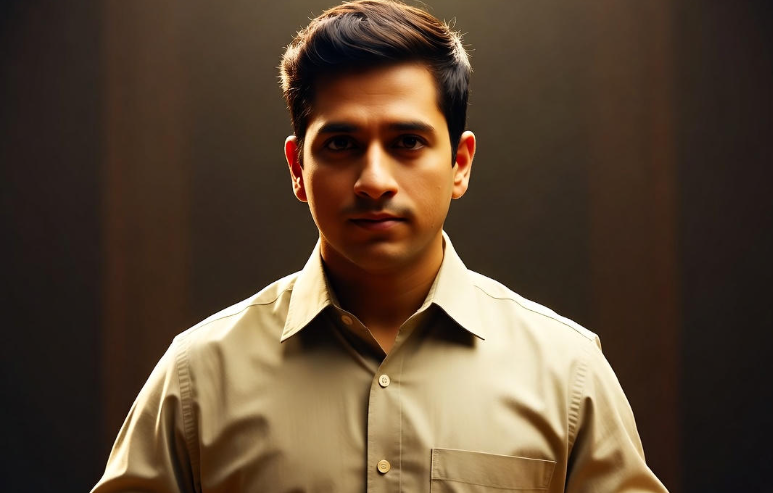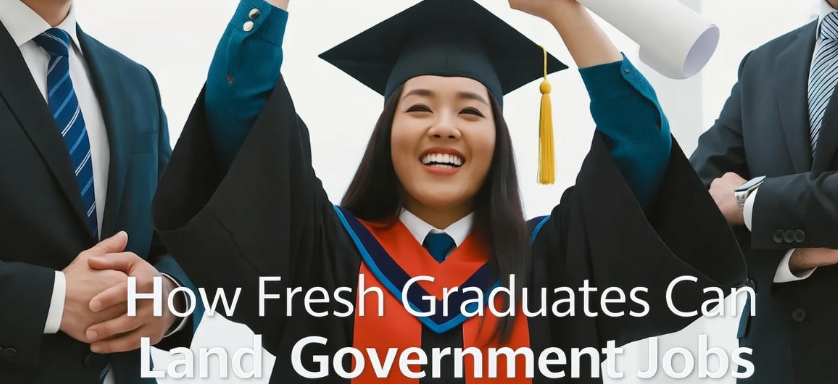Understanding the Importance of Smart Preparation
Preparing for a government interview is not just about memorizing facts. It’s about presenting yourself as confident, knowledgeable, and professional. Government jobs are highly competitive, and interviewers are trained to assess your problem-solving abilities, communication skills, and suitability for public service. Smart preparation means focusing on the right strategies rather than cramming everything blindly.
Know the Role and Department Thoroughly
Before anything else, make sure you understand the job you are applying for. Each government department has its own expectations and values. You should:
-
Research the department’s history and mission.
-
Understand the job description clearly.
-
Identify key skills the role demands.
Example Table:
| Department | Key Focus | Sample Skills to Highlight |
|---|---|---|
| Finance Ministry | Budgeting & Economic Policies | Analytical skills, attention to detail |
| Health Ministry | Public Health Initiatives | Communication, empathy, problem-solving |
| Education Board | Curriculum & Policy | Organizational skills, knowledge of education system |
By knowing this, you can tailor your answers to show that you are exactly what they’re looking for.
Prepare Your Personal Story
Government interviews often start with “Tell us about yourself.” This is your chance to make a strong first impression. Keep it concise, structured, and focused on:
-
Your academic background.
-
Relevant work or volunteer experience.
-
Skills and achievements related to the job.
Tip: Avoid overloading your introduction. Pause naturally, speak clearly, and make it conversational. Think of it like telling a story, not reciting a resume.
Stay Updated with Current Affairs
One of the most common areas in government interviews is current affairs. Interviewers want to see that you are aware of national and international developments. Smart ways to prepare:
-
Read newspapers daily (focus on government policies, economy, and social issues).
-
Follow credible online news portals.
-
Use short daily current affairs notes or apps.
Human touch tip: Instead of memorizing, try connecting events to real-life implications. This makes your answers sound natural and informed.
Practice Answering Common Questions
Government interview questions often fall into a few categories:
-
Behavioral questions: “Tell us about a time you handled conflict.”
-
Situational questions: “How would you improve public services in your department?”
-
Technical questions: Based on your field of expertise.
Sample Table of Common Questions and Smart Answers:
| Question | How to Answer Smartly |
|---|---|
| Tell us about yourself | Keep it brief, highlight achievements, connect to role |
| Strengths and Weaknesses | Mention 2 strengths related to the role; a weakness and how you are improving it |
| Why this job? | Show understanding of department and how your skills match |
Practice aloud. It might feel awkward initially, but speaking your answers naturally builds confidence and fluency.
Mock Interviews are a Game-Changer
Nothing beats practicing in a real-like setting. Mock interviews help you:
-
Reduce anxiety.
-
Identify weak points in your answers.
-
Get used to speaking confidently without filler words like “um” or “ah.”
Ask a friend, mentor, or professional coach to conduct a mock session. Even recording yourself can help you spot mistakes in tone, body language, or clarity.
Work on Body Language and Confidence
A lot of candidates focus only on knowledge but forget non-verbal communication. Remember: your body speaks as much as your words.
-
Maintain eye contact.
-
Sit straight, avoid fidgeting.
-
Smile naturally, it shows approachability.
-
Speak clearly, with moderate pace.
Human tip: Pause slightly after each answer—it shows you are thoughtful, not rushed.
Prepare for Group Discussions (if applicable)
Some government interviews include group discussions (GD). Here’s how to ace them:
-
Listen carefully before speaking.
-
Present your ideas clearly and concisely.
-
Respect others’ opinions. Avoid dominating the conversation.
-
Use examples to support your points.
GD Example Table:
| Topic | Strong Approach | Weak Approach |
|---|---|---|
| Public Health Policy | Cite data, suggest improvements, consider budget | General statements, no evidence |
| Education Reforms | Mention practical solutions, reference policies | Opinion-only statements, vague ideas |
Document Preparation and Dress Code
Don’t underestimate the basics. Documents and appearance matter.
-
Keep all certificates, ID proofs, and application copies ready.
-
Choose formal attire that reflects professionalism.
-
Avoid excessive accessories or loud colors.
Pro tip: Dress slightly more formally than what you think is needed—it shows seriousness.

Stress Management Before the Interview
Even the most prepared candidates can get nervous. To stay calm:
-
Practice deep breathing exercises.
-
Visualize success before entering the room.
-
Avoid last-minute cramming; it increases anxiety.
-
Sleep well the night before.
A calm mind helps you answer questions more clearly and convincingly.
Using Smart Study Tools
Instead of passive reading, use active methods:
-
Make short notes and mind maps.
-
Use flashcards for key facts and policies.
-
Practice writing and speaking answers simultaneously.
Emoji tip: 📝✏️ Use sticky notes or digital apps to review daily without stress.
Common Mistakes to Avoid
Even smart preparation can fail if you fall into these traps:
-
Over-preparation: Sounding robotic or memorized.
-
Ignoring soft skills: Communication, politeness, and confidence matter a lot.
-
Neglecting current affairs: Even a brilliant candidate can fail if unaware of recent events.
-
Poor document management: Missing certificates or wrong papers create unnecessary stress.
FAQs About Government Interview Preparation
Q1: How early should I start preparing for a government interview?
Start at least 2–3 months in advance for serious preparation. Focus on current affairs and mock interviews in the last month.
Q2: Can I rely only on coaching institutes?
Coaching can guide you, but self-study, reading, and mock practice are crucial.
Q3: How to handle tricky or unexpected questions?
Stay calm, think for a moment, and answer honestly. If you don’t know, it’s okay to admit but try connecting it logically to what you do know.
Q4: Should I focus more on technical knowledge or soft skills?
Both are equally important. Knowledge gets you noticed, but soft skills help you succeed.
Q5: How to improve confidence quickly?
Practice aloud, do mock interviews, maintain good posture, and visualize yourself succeeding.
Final Thoughts
Smart preparation is not just about memorization; it’s about strategy, practice, and confidence. Approach your government interview like a professional conversation. Be aware, prepared, and composed. Show them the best version of yourself, and success will follow. 🌟





